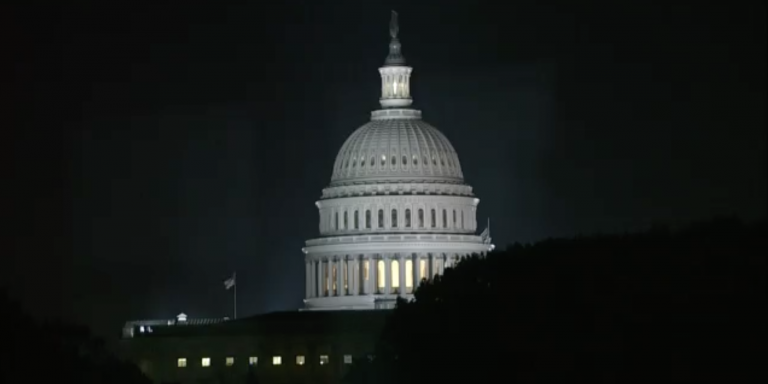INTELBRIEF
November 15, 2017
TSC IntelBrief: A Rare Step Towards Oversight of U.S. Wars

• On November 13, the U.S. House of Representatives approved a resolution affirming U.S. military actions in Yemen were not authorized by motions passed in 2001 and 2003 to fight terrorism and invade Iraq
• The bipartisan vote was a remarkable show of unity in such a politically divided Congress.
• The 2001 Authorization for the Use of Military Force has been stretched to cover ongoing, expanding U.S. military campaigns in Afghanistan, Syria, Yemen, and Africa.
• The fact that the U.S.-backed war in Yemen is actually helping al-Qaeda may have pushed Congress to reassert its long-dormant war powers.
On November 13, the U.S. House of Representatives took a meaningful, though symbolic step, towards reasserting a measure of congressional oversight over wars that have seen as much as sixteen years of combat, with possibly many more years to go. By a vote of 366 to 30, the House passed a non-binding resolution asserting that U.S. military support for the Saudi-led coalition in the war in Yemen was not authorized by resolutions passed in 2001 and 2003 that sanctioned the Bush administration’s war on terror and invasion of Iraq. The resolution was a warning shot to the Trump administration, as it follows two previous administrations in the steady spread of persistent U.S. combat engagements. It was aimed at the catastrophic war in Yemen, one of the least justifiable U.S. military operations since the Iraq War, both in terms of the U.S. national interest and the destruction being rained on that country.
The U.S. military has operated for years in Yemen; conducting drone strikes and limited Special Operation Forces (SOF) training and counter-terror missions with Yemeni partners against al-Qaeda in the Arabian Peninsula (AQAP). These SOF and drone operations were covered by the same 2001 Authorization for Use of Military Force (AUMF) that authorizes military operations in countries ranging from Afghanistan and Syria to Niger. While that limited engagement in Yemen came prior to the current war, it also provided a tenuous connection to the latest U.S. involvement, under the AUMF. Unlike the latest fighting however, the earlier missions had the goal of destroying a major affiliate of the group responsible for the September 11th attacks, AQAP.
The current war in Yemen has nothing to do with al-Qaeda, and is actually one of the more damaging steps the U.S. has taken in its counter-terrorism struggle since the invasion of Iraq. Washington is helping the Saudi coalition conduct air strikes against Houthi rebels, who are supported in varying, albeit increasing degrees, by Iran. U.S. weapons supplies, in-flight refueling capability, and targeting prowess are aiding coalition air strikes that have killed thousands of Yemeni civilians. More than two years of grinding war have the country on the edge of famine, while a cholera outbreak could top a million cases this year.
Up until now, Congress has done little to challenge White House assertions that far-flung military missions were all covered under the remarkably elastic AUMF. Yemen appears to have changed that. And while it is difficult, if not impossible, to justify the campaign the U.S. is enabling in Yemen, other factors are likely at work in Congress as well. The recent deaths of four U.S. soldiers in Niger exposed a significant and lasting U.S. counter-terrorism and counterinsurgency mission in that country. The deaths also emphasized a fact that has been both overlooked and out in the open for years — that the U.S. military is fighting and dying in many countries on counter-terrorism missions, and has been since 2001. Special Operations forces took part in missions in 138 states in 2016 and 150 states between 2011 and 2014. There may also be a growing realization in Congress that the threat of terrorism hasn’t declined to a degree commensurate with U.S. combat actions across the globe. Even in a politically divided Congress, that represents a deeply divided nation, the idea that current and ongoing U.S. military efforts require more justification than a reference to September 11th, clearly has bipartisan appeal.
On November 13, U.S. Secretary of Defense James Mattis told reporters that where the so-called Islamic State in Syria was concerned, ‘the enemy hasn’t declared that they’re done with the area yet, so we’ll keep fighting as long as they want to fight.’ That, along with the announcement of an ongoing, expanding military presence in Afghanistan, drove home the point that counterterrorism campaigns are much easier to start than finish, if they can ever be finished at all. The Yemen vote may reflect both growing resistance in Congress to the notion of endless combat, and an understanding that new conflicts require new justifications and authorizations.
For tailored research and analysis, please contact: info@thesoufancenter.org
.
.